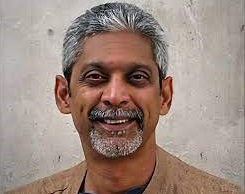
Vikram Patel, PhD, MBBS
The Pershing Square Professor of Global Health
As we celebrate the 10th anniversary of the Master of Medical Sciences in Global Health Delivery program, I reflect on its core mission, “to equip global health practitioners with the knowledge needed to improve health care delivery in resource-limited settings.” The very essence of this Master’s program is a unique blending of the foundations of implementation science with a deep engagement in social medicine. The program combines a range of instructional methods to forge a unique curriculum that teaches both the research skills to improve access to evidence-based interventions and the methods on how to ground them in an approach steeped in social justice, with the ultimate goal of eliminating historic disparities in health outcomes.
Over the past one hundred years, biomedical researchers have discovered hundreds of interventions, ranging from medicines, vaccines, and surgical procedures to behavioral, rehabilitative, and palliative care, which has dramatically transformed our abilities to save lives through preventing and curing disease, mitigating suffering. Yet, the full impact of these discoveries has been far from realized; even today, tens of millions of children die each year of diseases that could have been prevented through cheap vaccines or access to clean drinking water, which we have known about for decades. Or, to take an example from my own work, brief psychological therapies are highly effective in promoting recovery from common mental health problems; yet, only a tiny fraction of the millions of people who experience these problems globally can access these therapies. Not surprisingly, people who live in less-resourced contexts or who are socio-economically deprived are the ones who are most likely to be systematically denied access to these interventions. As a result, they suffer more and die earlier than they should. Addressing these inequities, which operate at multiple levels (global, national, and local), is the beating heart of global health delivery.
It is not acceptable to simply wait for the benefits of medicine to trickle down to those who are systematically excluded or denied these interventions or to frame these actions as charity by the rich and powerful: they must be confronted and challenged both through the application of the science of implementation and the moral arguments that health disparities consequent to avoidable suffering and death are an affront to humanity. The Master’s program in Global Health Delivery encourages scholars to understand why such disparities exist—through historical and political analysis; and how disparities devastate the lives of many through proximity to those who suffer. Most importantly, our scholars design, implement, and evaluate programs to improve the delivery of care to the most vulnerable. In this way, our alumni are true ambassadors of global health and social medicine. By applying the skills they have learned and the networks they build with others in the program, they will continue to be powerful agents of social change in their communities.
April 12, 2022
Return to the MMSc-GHD 10th Anniversary page.
Return to the MMSc-GHD main page.
